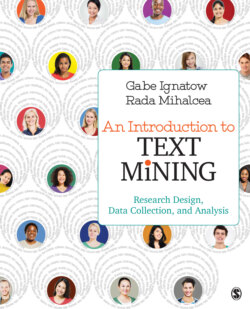Читать книгу An Introduction to Text Mining - Gabe Ignatow - Страница 42
На сайте Литреса книга снята с продажи.
Informed Consent
ОглавлениеInformed consent refers to the process by which individuals explicitly agree to be participants in a research project based on a comprehensive understanding of what will be required of them. The Belmont Report (discussed previously) identified three elements of informed consent: information, comprehension, and voluntariness. The principle of respect for persons implies that participants should be presented with relevant information in a comprehensible format and then should voluntarily agree to participate. Participants in research projects who have given their informed consent are not expected to be informed of a study’s theories or hypotheses, but they are expected to be informed of what data the researcher will be collecting and what will happen to that data as well as of their rights to withdraw from the research.
Informed consent is a core principle of human research ethics established in the aftermath of the Second World War. In important cases where the question is deemed vital and consent isn’t possible (or would prevent a fair test), it can be legally bypassed. But this is rare, and it is clear that the researchers in the Cornell–Facebook study failed to obtain consent from the thousands of Facebook users who were subjected to the manipulation of their news feeds. Instead, the researchers took advantage of the fine print in Facebook’s data use policy to conduct an experiment without users’ informed consent. Even though the academic researchers collaborated with Facebook in designing the study, it appears that they obtained ethical approval only after the data collection was finished (Chambers, 2014).
Researchers have argued that informed consent is not required for research in online contexts in which the data can be considered to be in the public domain (Eysenbach & Till, 2001; Sudweeks & Rafaeli, 1996). And professional research associations occasionally deem informed consent unnecessary in cases where the scientific value of a research project can justify undisclosed observation. However, in cases where it cannot be legitimately argued that data are in the public domain or where data are in the public domain but are protected by copyright laws, participants’ informed consent to use such data must be sought.
Because the process of seeking informed consent is onerous and requires the creation and administration of an IRB-approved informed consent form, text mining researchers typically prefer to use data that are clearly in the public domain.
